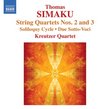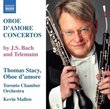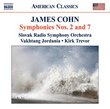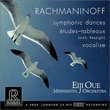| All Artists: Rossi, Fine Arts Quartet Title: Mendelssohn: String Quintets Nos. 1 & 2 Members Wishing: 0 Total Copies: 0 Label: Naxos Original Release Date: 1/1/2008 Re-Release Date: 5/27/2008 Genre: Classical Styles: Chamber Music, Historical Periods, Classical (c.1770-1830) Number of Discs: 1 SwapaCD Credits: 1 UPC: 747313048878 |
Search - Rossi, Fine Arts Quartet :: Mendelssohn: String Quintets Nos. 1 & 2
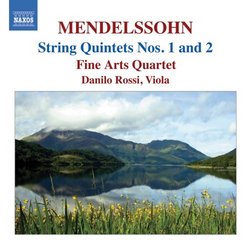 | Rossi, Fine Arts Quartet Mendelssohn: String Quintets Nos. 1 & 2 Genre: Classical
|
Larger Image |
CD DetailsSimilar CDs |
CD ReviewsTwo Glorious String Quintets Beautifully Played J Scott Morrison | Middlebury VT, USA | 06/12/2008 (5 out of 5 stars) "String quintets don't get played enough, largely because of the need for either a second viola or a second cello. And the Mendelssohn quintets (both of which require a second viola) certainly don't get played enough, particularly when compared to the magnificent Mozart, Schubert and Brahms quintets. However, both these works are worthy, and in the case of the Second Quintet essential. The Second Quintet, which starts this CD, is a humdinger. Its first movement starts off with extraordinary energy, even more than that of the Brahms Op. 111. Indeed, Brahms must have been keenly familiar with the Mendelssohn; there has always seemed to me to be a kinship between the two first movements with their bustling accompaniment and the vaulting first theme. The quintet's second movement is a delicate but often off-balance minuet. The Adagio is a minor-key lament, one of Mendelssohn's finest slow movements; it is unusual in that it migrates from D minor to D major. The finale is a flying vivace in sonata-rondo form with much of the sort of contrapuntal writing at which Mendelssohn was so adept. The First Quintet, written nineteen years earlier than the Second and correspondingly less nuanced, is a genial work that reminds one at times of Beethoven's Pastorale Symphony. Nothing is conflicted, nothing is philosophical, all is ease and grace. The first movement is a country dance, the second, 'Intermezzo', a tenderly melodious song, the third a merry scherzo replete with Mendelssohn's fairy music albeit with extraordinarily satisfying counterpoint. The finale is a sophisticated allegro, light-hearted but graceful. Interestingly, Mendelssohn wrote a fifth movement, a minuet, for the quartet, originally to be placed in third position. In its final form, the minuet is dropped and the Intermezzo replaced it and was moved into position two. The Fine Arts Quartet has been in existence since just after World War II. A fascinating history of the quartet is available at www.fineartsquartet.org. They have long been in residence at the University of Wisconsin - Milwaukee, and are surely one of the better quartets around. On this disc there is absolutely nothing I could find fault with. Their playing is sophisticated, nuanced, spirited and entirely satisfying. Recommended. Scott Morrison" HIGH FIVES DAVID BRYSON | Glossop Derbyshire England | 08/30/2009 (5 out of 5 stars) "2009 is the bicentenary year of Mendelssohn's birth, and I can't imagine a better monument than his string quintets in this superb recording. How well known they may be I have no way of telling, but I don't hear them broadcast much although they seem to me to be among his very finest compositions. These recordings were done in 2007, and of course by that date we expect a pretty high technical standard. Naxos being Naxos, we get the standard we demand, and at a modest price as usual too.
Mendelssohn's idiom is a delicate flower, calling for a patrician poise from the players to match the patrician elegance of the music. One real benchmark for measuring the performances is how the scherzos are handled. Mendelssohn's scherzos are something unique in the history of music - you could imitate a Beethoven scherzo, but not a Mendelssohn scherzo. The scherzo in the A major quintet, marked characteristically `allegro di molto', is of the kind familiar from the octet or the Midsummer Night's Dream music. To my ears, the Fine Arts Quartet have the idea of it to absolute perfection, fast indeed but not too fast and categorically not rushed. The speed is held steady (Mendelssohn like Schubert tends to benefit from some strictness in the tempo) with just a hint of an accelerando at one point that is all the more effective for not being exaggerated. You will hear this same inflection elsewhere in the set, to particularly fine effect in the `development' section of the first movement in the B flat quintet. The B flat's own scherzo is of a different kind, marked only andante. This is rightly understood by the performers as a swift andante, a kind of jogtrot, and again executed something like ideally. The B flat work, much the later composition of the two, is given first on the disc, and this strikes me as excellent and imaginative editing. The start of the work is a brilliant and effusive outburst, and if played as well as it is here it makes a marvellous first impression. The A major quintet is from much earlier in Mendelssohn's career, but with Mendelssohn of all composers we know better than to suspect lack of maturity or accomplishment from the early date, and he already had the octet to his credit. The liner note explains the circumstances in which Mendelssohn reorganised the piece, and the displaced minuet movement is given as a final filler. The liner also offers the interesting information that Mendelssohn was apparently dissatisfied with the last movement of the B flat work, and for that reason had still not sent it for publication at the time of his early death. Whatever Mendelssohn felt to be lacking I can't tell. It sounds fine to me as it is. Later in the 19th century the rot set into last movements with the curse of `cyclic form', but the 1840's were happily free of that. I could go through all nine movements here ticking all the right boxes in each. I really have no adverse criticism to offer. The playing itself is of high quality as you would expect. However this is artistic interpretation, itself a form of artistic creation, and more important than all the box ticking is the matter of the spirit and the soul of the music. Schumann, with characteristic generosity, described Mendelssohn as the Mozart of the 19th century. There is this much truth in the comparison I'd say, that Mendelssohn at his best has something of the same sense about him that he is one of the beloved of God as Amadeus himself has. This is the sense that makes me as enthusiastic as I am about this disc, and I recommend it entirely without reservation. " |

 Track Listings (9) - Disc #1
Track Listings (9) - Disc #1